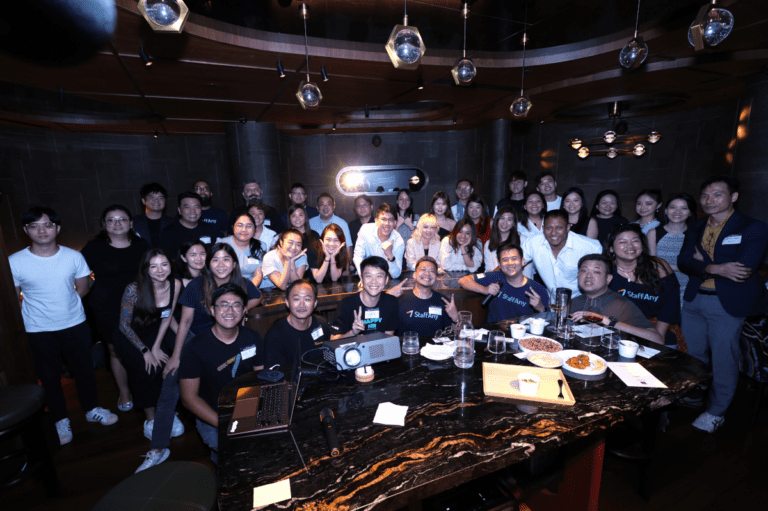In today’s competitive job market, possessing the right skills is crucial for becoming a valuable asset to any organisation. Employers seek individuals who not only excel in their respective fields but also possess a diverse set of abilities that contribute to a positive and productive work environment. These skills collectively define what makes a good employee.
In this article, we will explore some essential skills of a good employee that go beyond technical know-how. These skills of a good employee encompass various aspects, from effective communication to adaptability, and are vital for career growth and success. Let’s get started!
Essential Skills of a Good Employee
Becoming a valuable asset in the workplace goes beyond having expertise in a specific field. Employers today seek individuals with a diverse set of skills that contribute to a positive and productive work environment. Let’s delve into the essential skills of a good employee that pave the way for professional success and personal growth.
1. Effective Communication Skills
Effective communication is the cornerstone of success in any role. A good employee can articulate ideas clearly and confidently, both in writing and verbally. They not only convey information effectively but also actively listen to their colleagues, clients, and superiors, fostering better understanding and collaboration.
This skill enables them to share their knowledge, insights, and feedback efficiently, ultimately contributing to improved teamwork and a harmonious work atmosphere. Furthermore, good communicators are adept at tailoring their message to suit different audiences, ensuring that their interactions are engaging and impactful.
2. Adaptability
In today’s rapidly changing world, adaptability is a prized skill. Good employees can readily adjust to new challenges, embrace change, and remain open to learning. Their ability to adapt allows them to thrive in dynamic work environments where unforeseen circumstances and shifting priorities are common.
Adaptable employees are not discouraged by ambiguity; instead, they view it as an opportunity for growth and innovation. By demonstrating a willingness to take on new tasks and responsibilities, they showcase their versatility and versatility, making them valuable assets in any organisation.
Read more: 8 Elements of Employee Engagement
3. Time Management
Time is a valuable resource, and good employees know how to make the most of it. They possess excellent time management skills, allowing them to prioritise tasks, set realistic deadlines, and organise their schedules efficiently. By effectively managing their time, they ensure timely project completion without compromising on quality.
Good employees also have the ability to stay focused and avoid distractions, enhancing their productivity and overall performance. Time management not only benefits the individual but also contributes to the team’s success by ensuring that projects are delivered on time and within budget.
4. Problem-Solving Abilities
When faced with obstacles, good employees rise to the occasion with problem-solving prowess. They analyse situations critically, identify potential solutions, and make informed decisions to overcome challenges effectively. Problem-solving skills enable employees to navigate through complexities and find innovative ways to address issues.
Adept problem-solvers remain calm under pressure, evaluating multiple options before arriving at the best course of action. Their ability to think analytically and creatively allows them to contribute valuable insights, which contribute to the success of the organisation as a whole.
5. Team Player
Collaboration is essential in the modern workplace, and a good employee understands the value of teamwork. They actively participate in group projects, support their colleagues, and contribute to a harmonious work environment. Team players are reliable and accountable, ensuring that they fulfil their responsibilities and meet their commitments to the team.
They also demonstrate adaptability when working with diverse groups of individuals, promoting an inclusive and cooperative atmosphere. By fostering open communication and embracing the strengths of their team members, good employees contribute to enhanced productivity and the achievement of collective goals.
6. Leadership Skills
While being a team player is crucial, possessing leadership skills sets individuals apart. Good employees can take charge when needed, inspire others with their actions, and contribute to the growth and development of their team. Leadership skills encompass effective decision-making, delegation, and the ability to motivate others towards shared objectives.
A good employee not only leads by example but also empowers their colleagues, fostering a sense of ownership and dedication among team members. The ability to guide and mentor others is instrumental in nurturing future leaders within the organisation.
7. Emotional Intelligence
Emotional intelligence is the ability to understand and manage one’s emotions and empathise with others. A good employee maintains composure in challenging situations, communicates effectively with colleagues, and builds strong professional relationships. They are sensitive to the emotions of those around them and can adapt their communication style accordingly.
By demonstrating emotional intelligence, they navigate workplace interactions with empathy and tact, diffusing tense situations and resolving conflicts constructively. This skill is vital for establishing a positive work culture and building strong connections with colleagues, clients, and superiors.
Read more: 11 Ways to Boost Employee Morale
8. Critical Thinking
The ability to think critically is a valuable skill that allows employees to make informed decisions. Good employees can analyse information objectively, consider different perspectives, and arrive at well-reasoned conclusions. Critical thinkers are curious and inquisitive, seeking to understand the root causes of problems before implementing solutions.
This skill enables employees to identify opportunities for improvement and innovation, driving continuous growth within the organisation. By approaching challenges with a critical mindset, they contribute to more effective problem-solving processes and strategic decision-making.
9. Positive Attitude
A positive attitude can work wonders in the workplace. Good employees maintain an optimistic outlook, even in challenging circumstances, which not only boosts their morale but also inspires those around them. Their positivity creates a motivating work environment, fostering increased productivity and creativity among colleagues.
Moreover, positive employees are more resilient in the face of setbacks, as they view obstacles as opportunities for growth and learning. By radiating positivity, they contribute to an overall culture of optimism, teamwork, and perseverance.
10. Professionalism
Exhibiting professionalism in all aspects of work is a hallmark of a good employee. This includes punctuality, respecting deadlines, adhering to company policies, and maintaining a positive and ethical work demeanour.
Professional employees show respect to colleagues and clients, regardless of their role or level of responsibility. They take pride in their work and demonstrate a commitment to excellence, which positively influences the organisation’s reputation and credibility.
11. Tech Savviness
In today’s digital age, proficiency with technology is often essential. HR managers should ensure that employees have the necessary technological skills for their roles and provide training opportunities to keep them updated on relevant tools and systems.
12. Ethical Judgment and Integrity
Employees with strong ethical judgment and integrity contribute to a positive workplace culture. HR managers should prioritize hiring individuals who align with the organization’s values and promote ethical behavior.
13. Customer Focus
For roles that involve customer interactions, having a customer-focused mindset is essential. HR managers should assess a candidate’s ability to understand and meet customer needs.
Read more: 7 Tips on How To Build a Good Employee Schedule
The Keys to Recruit the Best Restaurant Staff Candidates
Recruiting the best restaurant staff is crucial for the success of a restaurant, as the quality of service and the overall dining experience greatly depend on the skills and attitude of the staff. Here are some key strategies to recruit the best restaurant staff candidates:
1. Define Job Roles Clearly
Clearly outline the responsibilities and expectations for each role within the restaurant. This includes front-of-house positions (servers, hosts, bartenders) and back-of-house positions (chefs, cooks, kitchen staff). Well-defined job descriptions help attract candidates with the right skills and interests.
2. Attractive Job Listings
Craft compelling and detailed job listings that highlight the positive aspects of working at your restaurant. Mention any unique perks, a positive work environment, and opportunities for growth. Use language that reflects the restaurant’s culture.
3. Utilize Multiple Platforms
Post job openings on various platforms, including online job boards, social media, and your restaurant’s website. Consider local community boards and culinary schools for targeted outreach.
4. Networking within the Industry
Leverage industry connections and networks. Attend industry events, collaborate with culinary schools, and engage with professional organizations to tap into a pool of experienced and passionate individuals.
5. Employee Referral Programs
Encourage current staff to refer potential candidates. Offering incentives, such as bonuses or recognition, can motivate employees to actively participate in the recruitment process.
7. Showcase Your Restaurant’s Culture
Highlight the unique culture of your restaurant in your recruitment efforts. Whether it’s a focus on creativity, teamwork, or a commitment to high-quality ingredients, showcasing your company culture helps attract candidates who resonate with your values.
8. Interactive Recruitment Events
Organize recruitment events or open houses where candidates can learn more about your restaurant, meet current staff, and even participate in practical exercises or interviews. This hands-on approach can help identify candidates who align with your restaurant’s ethos.
9. Flexible Scheduling
Recognize that many restaurant staff prefer flexible schedules. Clearly communicate any flexible scheduling options or policies, as this can be a significant selling point for candidates seeking work-life balance.
10. Competitive Compensation
Offer competitive wages and benefits to attract top talent. Conduct market research to ensure that your compensation packages are in line with industry standards and the cost of living in your area.
11. Thorough Interview Process
Conduct comprehensive interviews that assess not only technical skills but also cultural fit. Consider practical assessments or trial shifts to observe candidates in action and evaluate their ability to perform under restaurant conditions.
12. Employee Development Opportunities
Emphasize opportunities for growth and development within your restaurant. Clearly communicate potential career paths and training programs, showing candidates that their skills and ambitions are valued and supported.
13. Positive Employer Branding
Foster a positive employer brand by maintaining a good reputation within the industry and the local community. Positive reviews on employer review websites and word-of-mouth recommendations can attract quality candidates.
By implementing these strategies, you can increase your chances of recruiting and retaining the best restaurant staff candidates who will contribute to the success of your establishment and enhance the overall dining experience for customers.
In conclusion, mastering the essential skills of a good employee is the key to unlocking success in today’s competitive job market. Effective communication, adaptability, time management, problem-solving, and teamwork are just a few of the vital attributes that shape valuable employees.
Read more: How Does Rotating Shift Work? Find the Tips and Types
Streamline your Workforce Management with StaffAny
By continuously honing these skills, individuals can become assets to their employers, contribute significantly to their organisations, and experience personal growth and development.
Ready to optimise your workforce management and streamline time tracking? Try StaffAny’s staff timesheet software!
Our automated consolidation and smart tools allow you to efficiently manage staff timesheets, saving you valuable time and resources. With multi-outlet consolidation and transparent timesheets, you gain a comprehensive overview of your workforce’s hours and activities.
Reduce discrepancies and control costs effortlessly with our user-friendly interface, designed to embrace changes on the ground seamlessly. Take charge of your employee management today with StaffAny’s innovative staff timesheet software!













